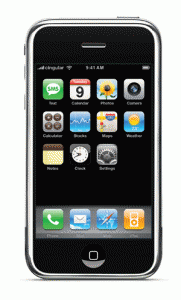May 16, 2012
Click here for the full written transcript of this podcast episode.
In this May 16, 2012 free audio podcast: How To Avoid Sudden Heart Attacks While Running Also: heating saturated oils, thick phlegm during exercise, fasted workouts and back-loading carbs, treating celiac disease naturally, healing rotator cuff tears, getting sick during training, very heavy sweat rates, and knee cartilage removal.
Do you have a future podcast question for Ben? click Ask a Podcast Question at the bottom of this page, Skype to “pacificfit” or scroll down on this post to access the free “Ask Ben” form…
Remember, if you have any trouble listening, downloading, or transferring to your mp3 player just e-mail [email protected]. Also, please don't forget to leave the podcast a ranking in iTunes – it only takes 2 minutes of your time and helps grow our healthy community!
—————————————————–
News Flashes:
To get this and other news flashes fresh off the press every week, follow Ben on Twitter and Google+.
- “zero calorie” sweeteners actually disrupt your blood sugar & spark your appetite.
- As long as you're OK with about 1 pound of wt loss per week, you can lose fat & gain muscle at same time.
- Foam rolling can increase your flexibility by over 12%!
—————————————————–
Special Announcements:
Ben now has workouts available – on the PEAR exercise device.
A full 30 week workout – Ben's book, The Ultimate Weight Training Guide For Triathletes is now available on TrainingPeaks.
50% Discount on Triathlon Coaching – You heard him interviewed here on “Why Running Drills Are Bad For You” and now you can get a 50% discount on your first month of coaching with Graeme Turner. Just use code “COACHGRAEME” at http://ow.ly/9IIeY
Superhuman Coach – If you are a coach or personal trainer who wants to join Ben Greenfield's mastermind group, and get access to a monthly meeting with Ben, coach forum, and 10 webinars on Performance, Fat Loss, Recovery Digestion, Brain, Sleep and Sexual Health, along with Ben's “Triathlon Coach Guide” book and his “Triathlon Coach Insider” program, then visit www.superhumancoach.com
Thailand Adventure – Join Ben in Thailand this winter for the triathlon adventure of a lifetime at the Laguna Phuket Triathlon and the Asia Pacific 70.3 Triathlon! Get all the details at www.pacificfit.net
—————————————————–
Listener Q&A:
As compiled and read by Brock, the Ben Greenfield Fitness Podcast “sidekick”.
Audio Question from Chris:
We frequently hear about fellow athletes having these profound medical events where they “crash” and it is determined they have a 80-90 percent blockage in an artery! I personally know of two fellow runners who have had this occurrence. Fortunately both survived after open heart surgery. I am amazed that we continually hear about active, well trained athletes who experience near death occurrences in spite of being active. Makes me wonder about all the efforts of preventative healthcare. I understand much of this can be hereditary but am surprised when a well performing athlete crashes with no previous indicators. I am sure that Listeners would be interested if there are test available to screen for life threatening blockages since it appears that it can strike athletes who are training and performing and show no signs in advance. Would a stress treadmill test be an indicator test?
~ In my response to Chris, I mention the HeartMath emWave2. I also mention this article. And (of course) the New England Journal of Medicine's Cardiac Arrest during Long-Distance Running Races.
Audio Question from Tony:
Udo Erasmus talks about how when you heat saturated fat you damage them and even if you have a good diet you can't reverse the damage from heated oil. What is your opinion on using it for cooking?
~ Episode #127: Why Saturated Fat Won't Kill You But Vegetable Oil Will
Audio Question from Josh:
Trouble during hard efforts during races. Thought he drank too much water during the swim because of thick phlegm and gunk on the bike and run. Doesn't think it is dietary, doesn't take meds, doesn't want to take pseudoephedrine.
Audio Question from Chuck:
What is your take on the new protocol “carb back-loading”? Also, you often recommend fasted workouts in the morning to burn fat. How long should you have fasted for that to be beneficial? Can you fast after a workout instead?
Audio Question from Jenny:
Went to a GI (gastrointestinal) Doctor for stomach problems and found out that she is celiac and has acid reflux. Was prescribed medication for an entire year and doesn't want to take it (and hasn't been taking it). Is there a supplement or natural food to help with this, rather than taking the meds?
Audio Question from Shane:
Recent recipient of a rotator cuff tear and is worried about the length of recovery. Would you use a Tens Unit or Bio Tools?
~ In my response, I mention the injuries section of my recommendations page.
Shaun asks:
I am a fairly healthy person but by no means an elite athlete. I find that whenever I make a conscious effort to stick to a 6 week workout program by week 3 I often get sick (cold/flu). I am curious to understand whether or not this is a result of the increased workout causing my body to work overtime in repairing my muscles etc and therefore making me more exposed to germs etc, or is it just coincidence.
~ In my response, I recommend Restwise.
Brenden asks:
For some reason, I have a VERY high sweat rate. It's ridiculous in the warmer months. You can't draft behind me. I know most likely a genetic item, yet wanted to ensure there wasn't something homeopathic or completely safe and natural I was missing. I'm clear on how I simply need to hydrate more, supplementing electrolytes and minerals, yet would love to find something that helps me retain this stuff in the first place. Very costly and significant disadvantage in comparison to my more sweat efficient competition. You get the picture.
~ In my response, I recommend Noakes book Waterlogged. I also recommend these Trace Mineral.
Doug asks:
I have a question for Graeme Turner. There was a podcast done with Ben and Graeme concerning running drills. One of the comments that Graeme mentioned was that he had all the cartilage in his knees removed and is now running better than ever. My question concerns my wife, who due to tears and arthritis has either none or little cartilage left in her knees. Graeme is running while my wife can barely walk due to the pain and swelling. What I am trying to find out is how and why. Drills are not really an answer, as I would like to get her walking pain free first. Her knees are really swollen. Steps or angles are really painful to negotiate. Any chance you can give me information of treatments or procedures that you went through. The consultants are saying that full knee replacements are the only option. I have looked at Prolotherapy, but this seems to be more repair of muscles and cartilage, which you need to have cartilage first. Grafting appears to also be out as again you need to have something to graft too. I have also read about cartilage replacement, using cadavers. However in the UK the NHS is not the most forward thinking organization. At age 43, she is too young for replacements, as I believe they would wear out too quickly, due to the amount of movement she would do. The average knee replacement seem to only last a maximum of 10 years, and you can only have it done twice. We appear to be running out of options, but am trying to resist replacements.
Prior to asking your question, do a search in upper right hand corner of this website for the keywords associated with your question. Many of the questions we receive have already been answered here at Ben Greenfield Fitness!
====================================== ======================================
Brand new – get insider VIP tips and discounts from Ben – conveniently delivered directly to your phone! Just complete the information below…
| First Name | |
| Last Name | |
| Cell # (1+area code): | |


I think this goes with the diet composition. I recommend staying free from fatty foods and salty foods. For sweeteners, use artificial sweeteners during pregnancy for light diet affixes.
Just a comment on your carb backloading question, you stated about mTOR stimulation reducing lifespan which is corect, however carbohydrate does not cause an mTOR upregulation but rather protein ingestion.
This can be seen in two papers by Sanz in 2005 from the Journal of Bioenergetics and Biomembranes, one about the restriction of carbohydrate and one on restriction of protein, and the effects of both on lifespan.
On the Carb Backloading advertising materials it says: "One of the most powerful regulators of tissue growth is called the mammalian target of rapamycin (mTOR) — an absolutely key component to losing fat while keeping and even gaining muscle. Carb Back-Loading keeps the mTOR pathway open, stimulated and raging to trigger new muscular growth."
If you go to NIH website, you'll note a search for carbohydrate mTOR pathway reveals that calories from carbohydrates can certainly upregulate mTOR pathway, which may possibly be from an amino acid sparing effect, like this: http://cardiovascres.oxfordjournals.org/content/7…
woohoo, the same day my question makes it into the podcast my get fit book arrives. Thanks for a great no nonsense answer to my question. Shaun
Duh… never mind… I did a page search using various keywords, but didn't read (lazy…). I found it now
Ben, Where can I find the show notes? I was looking for the link to the HRV monitor you mentioned…